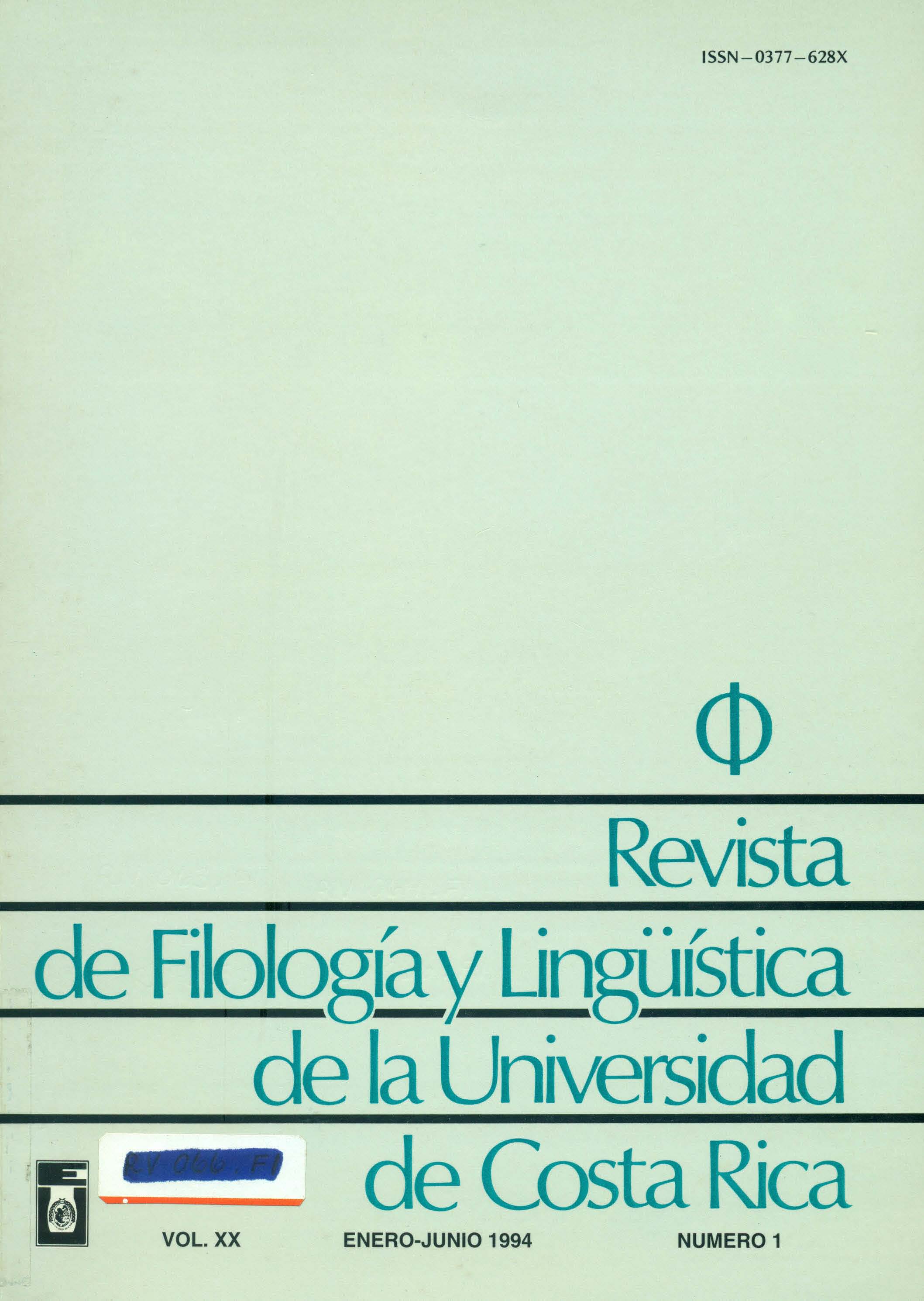Resumo
Este artículo analiza las respuestas de 343 estudiantes universitarios de Costa Rica a la cuestión de si o no hablan español "bien" y por qué. Las justificaciones de sus respuestas a esta pregunta abierta, así como el bajo estatus asignado a los marcadores del discurso de Costa Rica indican que, de hecho, tienen un grado notable de inseguridad lingüística.
This article analyzes the responses given by 343 Costa Rican college students to the question of whether or not they speak Spanish "well" and why. The types of
justifications for their answers to this open question, as well as the low status assigned to markers of Costa Rican speech indicate that, in fact, they have a noticeable degree of Linguistic insecurity.
Referências
Halliday, M., McIntosh, A. y Strevens, P. 1964, The Linguistic Sciences and Language Teaching. Londres: Longman.
Labov, William. 1972. Sociolinguistic Patterns. Filadelfia: University of Pennsylvania Press.
Lynch, Brian K. 1990. A context-adaptive model for program evaluation. TESON Quarterly, Vol. 24, No. i., pp. 23-42.
Miles, M.B. Y A.M. Huberman. 1984. Qualitative data analysis: A sourcebook of new methods. BeverlyHills, eA: Sage.
Trudgill, Peter. 1983. On Dialect. Social and Geographical Perspectives. Nueva York: New York University Press.
Giles, H., Gourhis, R., Trudgill, P. y Lewis A. 1974. "The imposed norm hypothesis: a validation". Quarterly Journal of Speech 60, 405-10.

